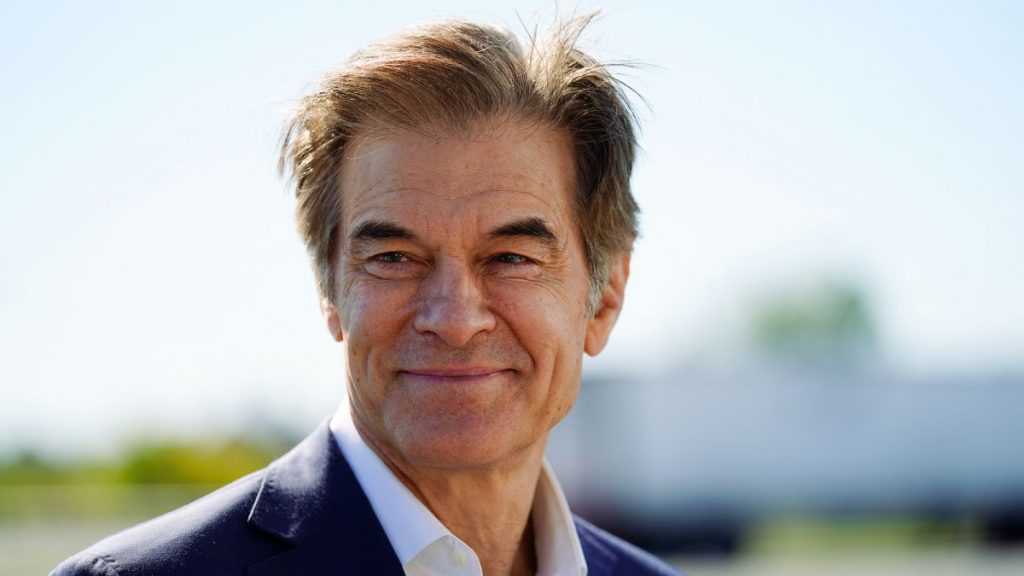Dr. Mehmet Oz, a prominent heart surgeon and well-known television personality, has been selected by President-elect Donald Trump to oversee the Centers for Medicare and Medicaid Services (CMS) in his forthcoming administration. This pivotal agency governs health insurance programs that affect over 145 million Americans, primarily through Medicare for seniors and Medicaid for low-income individuals. In making this choice, Trump expressed his belief that Oz is highly qualified to address the significant healthcare challenges facing the nation, positioning the nomination as a crucial step in his slogan, “Make America Healthy Again.” Oz’s qualifications are rooted in his extensive medical education and experience, along with his public visibility as a health expert through his long-standing television career.
Dr. Oz’s medical credentials are noteworthy; he is a graduate of both Harvard University and the University of Pennsylvania School of Medicine. He served as the director of the cardiovascular institute at New York Presbyterian Medical Center. Additionally, Oz holds the title of professor emeritus of surgery at Columbia University, highlighting his academic contributions. His rise to fame began as a health expert on “The Oprah Winfrey Show,” and he later launched “The Dr. Oz Show,” which won him multiple Daytime Emmy awards. With eight bestselling books on health and wellness to his name, Oz has established himself as a trusted figure in health advice for many viewers, which bolsters Trump’s rationale for appointing him to this influential position.
Oz’s political endeavors have been somewhat mixed; he ran for the U.S. Senate in Pennsylvania in 2022, winning the Republican primary with Trump’s endorsement. Despite high expectations, he lost the subsequent general election to Democrat John Fetterman. This electoral defeat reveals the complexities of transitioning from a popular media personality to a successful political candidate, a journey that has proven challenging for many celebrities in political landscapes. Oz’s prior opponents have continued to influence Pennsylvania’s political scene, with competitor David McCormick securing a Senate seat in the subsequent November 2024 election, underscoring the competitive nature of American political races.
Despite his credentials, Oz’s selection is controversial due to his past instances of providing questionable health advice on his television show. A study published in the British Medical Journal assessed episodes of “The Dr. Oz Show,” revealing that a significant portion of the health recommendations made were either contradictory or lacked scientific evidence. This scrutiny reflects broader concerns about the responsibilities of television figures in shaping public health perceptions and the seriousness with which media outlets convey health information. In congressional hearings, Oz faced criticism for his potentially misleading claims regarding health products, particularly when he used the term “miracle” in reference to certain supplements. This negative attention raises questions about his suitability to lead a large federal agency with vital implications for public health.
The ramifications of Trump’s decision to select Oz can also be examined within the context of the government’s broader handling of healthcare issues, especially in relation to the COVID-19 pandemic. During the pandemic, Oz endorsed the antimalarial drug hydroxychloroquine as a treatment, a position that drew backlash due to insufficient evidence supporting its effectiveness against the virus. Such instances of promoting unproven treatments contribute to Oz’s contentious reputation, impacting public trust in his capabilities as a leader of CMS, where factually accurate and evidence-based approaches are crucial for effective health policy management.
In conclusion, Dr. Mehmet Oz’s nomination to lead the Centers for Medicare and Medicaid Services by Donald Trump embodies the intersection of celebrity, healthcare, and politics, all under the backdrop of a significant national healthcare crisis. His extensive medical background, public recognition, and previous political experiences position him uniquely within this role. However, questions linger regarding his past health recommendations and public statements, necessitating a careful evaluation of his qualifications and ethical responsibilities as he steps into a role that significantly influences the healthcare landscape for millions of Americans. As the nation grapples with ongoing health care challenges, Oz’s leadership will undoubtedly be scrutinized with the hopes that it aligns with rigorous scientific standards and ethical practices in public health promotion.














